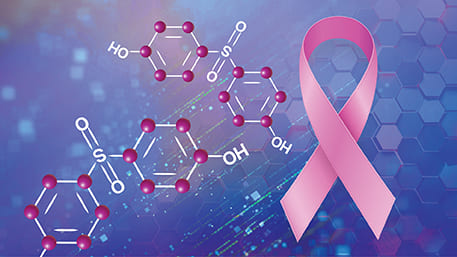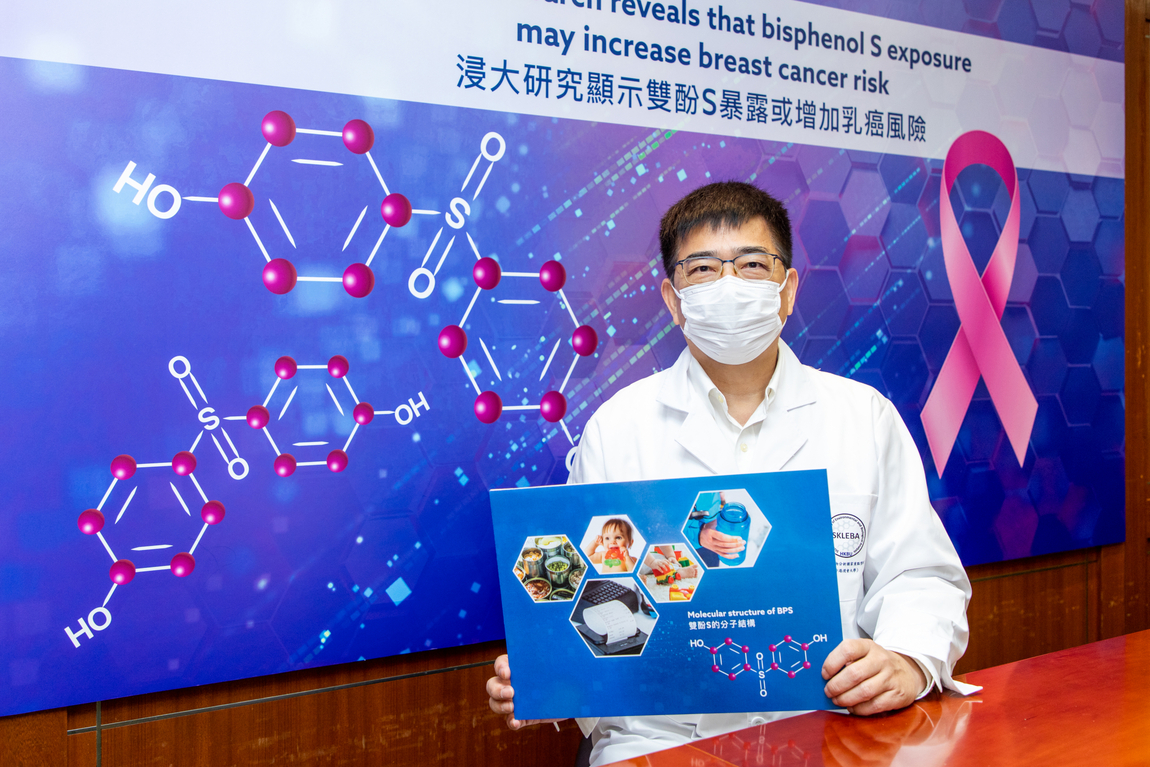Common plastic chemical may increase cancer risk

A study led by Hong Kong Baptist University (HKBU) has revealed that different degrees of exposure to a common industrial chemical called bisphenol S (BPS) are associated with the growth and deterioration of breast tumours in mice.
BPS is used in paper products and plastic food and drink containers. It was introduced to replace bisphenol A (BPA), which has previously been linked to metabolic disease and an increased risk of breast cancer.
Led by Professor Cai Zongwei, Chair Professor of the Department of Chemistry and Director of the State Key Laboratory of Environmental and Biological Analysis, the research team carried out several experiments on three groups of mice that had been transplanted with human breast cancer cells to explore how exposure to environmentally relevant levels of BPS affects the development of breast tumours.

A research team led by Professor Cai Zongwei has revealed that different degrees of exposure to bisphenol S are associated with the growth and deterioration of breast tumours in mice.
When the scientists analysed the tumours in mice that had been given a low dose of BPS, they found that the necrotic region, which is associated with tumour proliferation, accounted for over half of the average section area of the tumours. However, when they examined the mice that had been given a high dose of BPS, they discovered that on average they had a smaller necrotic region, while an area called the neoplastic region was extended, indicating deterioration of the tumours. As a result, they concluded that a low dose of BPS induced faster tumour growth, while in contrast, a high dose of BPS led to the deterioration of breast tumours.
“Further study is deemed necessary to unveil more about the chemical’s possible negative impact on human health. In the long run, industry may need to identify safer substitutes for both BPA and BPS,” said Professor Cai.
The research was published in the Journal of Hazardous Materials